Work in papermills and predatory publishing can seem, despite all the good money it makes, as dull, boring, dismal, stuffy, drudging and tedious. But sometimes, it is about pirates!
Smut Clyde has a very long read for you, about Asian buccaneers who hijack, raid, maraud, plunder, loot and ransack journals which once were demed to be respectable but ended up defunct or bancrupt.
Put the kettle on, and enjoy. It has 7 long parts, so I did warn you.

We don’t need no education, We don’t need no thought control
By Smut Clyde
1. Introduction
Meet Pal Arch’s Journal of Archeology of Egypt / Egyptology; and its new Associate Editor, Kittisak Jermsittiparsert of Duy Tan University, Vietnam, not the same as the old boss.
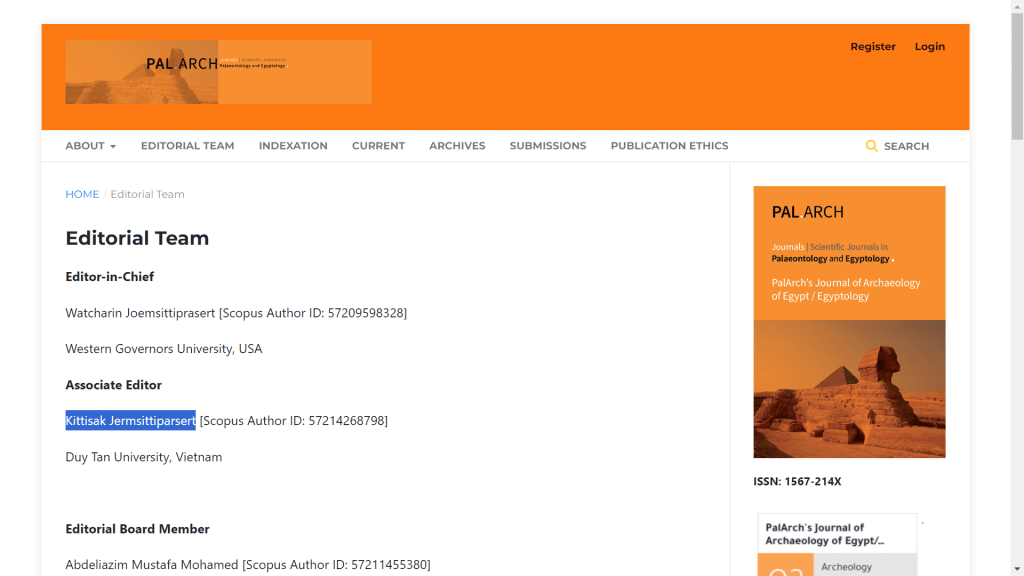
Its archives go back to 2003, and for most of its two-decade history the pages focused on Egypt. In late 2020 the PalArch Foundation Chairman André J. Veldmeijer signed the journal over to an open-access publisher to be maintained… not realising that OAText are low-rent OMICS wannabees.
The OAfs loosened the ‘Egypt-Only’ stricture and replaced it with a new policy of accepting absolutely anything. And now, according to receipts that people saved on the Intertubes, the cheques paying for that acceptance should be made out to Intellectual Edge Consultancy (Malaysia). The OAfs must have on-sold the whole package to someone else. But to whom? It is the Riddle of the Sphincter!
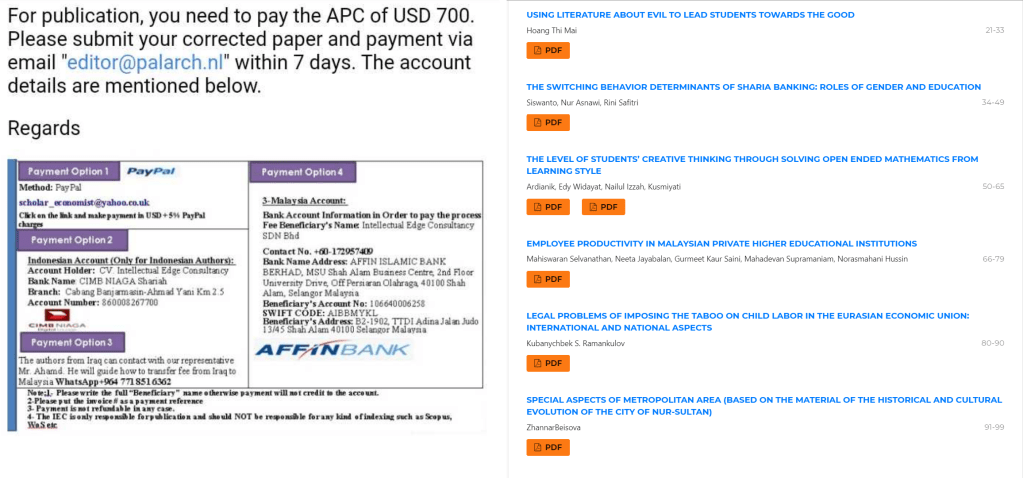
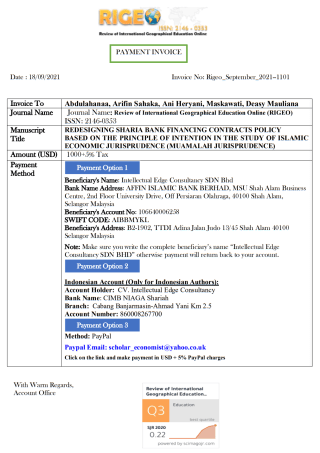 Another data point: Review of International Geographical Education Online (RIGEO). Founded in 2011 and first housed on the DergiPark platform, with a sudden shift of ownership between May 2021 and July 2021. A typical invoice instructs contributors to make the cheque for US$1050 payable to “Intellectual Edge Consultancy”. Editor-in-Chief is now a certain Professor Dr. Kittisak Jermsittiparsert, though this was not always the case.
Another data point: Review of International Geographical Education Online (RIGEO). Founded in 2011 and first housed on the DergiPark platform, with a sudden shift of ownership between May 2021 and July 2021. A typical invoice instructs contributors to make the cheque for US$1050 payable to “Intellectual Edge Consultancy”. Editor-in-Chief is now a certain Professor Dr. Kittisak Jermsittiparsert, though this was not always the case.
A third data point: Revista Argentina de Clínica Psicológica, published by Fundación AIGLÉ. Until in August 2019 the link suddenly redirected to an English-language website, and acquired this Kittisak Jermsittiparsert dude with a degree in business administration as its new editor.

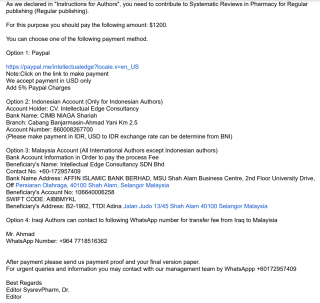 So when I discovered that Systematic Reviews in Pharmacy is yet another journal that now instructs contributors to pay US$1200 to that same Consultancy, I was not surprised to find a familiar name recruited in 2020 to be Editor-in-Chief.
So when I discovered that Systematic Reviews in Pharmacy is yet another journal that now instructs contributors to pay US$1200 to that same Consultancy, I was not surprised to find a familiar name recruited in 2020 to be Editor-in-Chief.
Harken now to the Editors of European Journal of Philosophy of Religion at the end of June 2022, anticipating a radiant future of stability and prosperity:
“At the end of 2022, EJPR will be integrated into the JCF Corporation, an open-access publisher. This should secure the long-term future of the journal and bring a number of technical improvements.”
 Wikipedia contributor Simmeler was not well-pleased with the outcome:
Wikipedia contributor Simmeler was not well-pleased with the outcome:
“To ensure the journal’s continued existence, it has been transferred to a publisher in Asia in 2022. This led to some drastic changes: The focus on philosophy of religion has no longer been maintained and an expensive pay-to-publish scheme has been introduced.“
But at least Kittisak Jermsittiparsert is not a member of the new Editorial Board! Instead we find (inter alia)
- Darchia Maia, University of Georgia Athens, Georgia
- Kyle Burrichter, Houghton College, United States
The former doesn’t exist, despite serving on so many Editorial Boards as to be the hardest-working nonentity in history. Kyle Burrichter does exist, but is arguably too busy observing birds and gibbons in the field to realise that in a parallel universe he is a Professor in the Department of Biotechnology.

What seems to be happening here is that specialists found a journal, and lovingly nurture it, then worry whether colleagues are enthused enough to keep up the hard work after they retire. They are delighted when they hear from someone like JCF Corporation in Singapore, proposing a partnership that will keep the journal sustainable and financially stable. Much as someone might offer to look after a beloved family pet whose owners are growing too old to give it the care it needs, only to sell it to a medical laboratory on the first opportunity.
“We are JCFCorp from Singapore, a consulting firm for Acquisitions and Mergers for academic journals. JCF Corp is the only company in the world that specialising in the transfer of scholarly assets, we have experience in the transfer of more than 100 titles, and dozens of publishing firms are transferred between the parties. We help parties in all phases of the deal, from negotiation to handing over of property. We also help with the preparation of legal documents, technology transfers, such as (archives, web transfer, domain transfer, preprint designs transfer, DOI transfer etc.). “
In most cases the cold-calling altruists unload the asset and its profitable SCOPUS listing onto someone like Intellectual Edge Consultants. Unless they contacted the Editors of the Macedonian Journal of Chemistry and Chemical Engineering, or of the International Journal of Pagan Studies, who record their experiences of mendacious jibber-jabber from OMICS, OAText, JCF Corp and other grifters.
I am led to this melancholy conclusion by a collection of (so far) 450 papers. It is large enough to divide the inevitable spreadsheet into five disjoint worksheets, comprising papers that
- Cite Muhammad Talha.
- Cite a constellation of pirated journals. About Education research.
- Cite a constellation of pirated journals. About Environment research.
- Cite a constellation of pirated journals. About Health research.
- Cite papers in Zhende journals, especially Science Progress & Research.
- Belong to the Emperor.
- Tremble as if they are mad.
- From afar look like flies.
Jermsittiparsert isn’t really the topic here; he was just a convenient starting-point. Readers should brace themselves for further exploration of the intellectual midden of Hindawi journals… with a special focus on Education Research International, which has so far escaped the mass purges of Special Issues. Thus justifying the first half of the post’s title. But we also stray onto Anna Abalkina‘s side of the street and encounter a multi-headed hydra of co-opted journals. And that lens, darkly, affords another perspective on citation markets.
 Note that the journals were not hijacked sensu stricto, with copycat but predatory websites set up to steal their identities. They seem to have been taken over using false pretences as is allowed under the Rules of Acquisition. Anna suggests “Piracy” for this new(ish) phenomenon. My suggestion was “OMIXation” in honour of the OMICS business practice, but no-one ever listens to Uncle Smut.
Note that the journals were not hijacked sensu stricto, with copycat but predatory websites set up to steal their identities. They seem to have been taken over using false pretences as is allowed under the Rules of Acquisition. Anna suggests “Piracy” for this new(ish) phenomenon. My suggestion was “OMIXation” in honour of the OMICS business practice, but no-one ever listens to Uncle Smut.
The academic domain of Education Research turned out to dominate this post. Who would have thought that such an uncommercial, ivory-tower niche was worth so much fraud, exploitation and Sturm-und-Drang? FULL DISCLOSURE: I have published on education psychology and classroom environments, and was attached to an Education Department in an earlier regeneration, which rendered me immune to surprise.
There was less room to dwell on the Environmental applications for purchased papers and authorship. Suffice to say that the steady collapse of our shared biosphere created an academic niche for researchers who are willing to write about fixing everything with market solutions and technological advances (Sustainable Industry, Green Energy, sharing economy, circular supply chains!), thus creating opportunities for promotion through Highly-Cited shenanigans. They have their own journals with all the large publishers, all citing one another and recycling their own material in the interests of Sustainability. They also like to cite an overlapping portfolio of pirated journals. They’re not part of the title because Pink Floyd lyrics left out “We don’t need no Biosphere”.
2. Muhammad Talha
I propose to begin with a Special Issue of Soft Computing (whose management learned nothing from earlier mass retractions) – on “Advances in Pattern Recognition and Computer Vision, Applications and Systems“. These four papers in particular:
- “Research on modeling of government debt risk comprehensive evaluation based on multidimensional data mining” (Li et al 2022).
- “Research on trade data encryption of tobacco enterprises based on adversarial neural network” (Yi 2022).
- “Research on intelligent language translation system based on deep learning algorithm” (Shi 2022).
- “An adaptive genetic algorithm-based background elimination model for English text” (Tang 2022).
What commends them to our attention are the citations to a Muhammad Talha (“Master of Research”) that adorn their References. And also, the existence of the original versions of the papers, in ResearchSquare, allowing before-and-after-Springer comparisons. The promotional citations were absent from the preprints… that is, they were added by the Guest Editor M. Irfan Uddin, or on the insistence of a reviewer.

 Muhammad Talha turns out to have many fans, and his papers are widely cited – mainly within Special Issues of Hindawi journals. This is despite their obscurity, for as well as in Hindawi, Talha likes to publish in Revista de Psicologia del Deporte and Cuadernos de Economía and Journal of Commercial Biotechnology (which zealously guard their contributors’ privacy by not bothering to validate their DOIs). He has a couple of regular collaborators, but usually his coauthors are different on each paper, and from China. It is almost as if they bought the authorship and are just along for the ride!
Muhammad Talha turns out to have many fans, and his papers are widely cited – mainly within Special Issues of Hindawi journals. This is despite their obscurity, for as well as in Hindawi, Talha likes to publish in Revista de Psicologia del Deporte and Cuadernos de Economía and Journal of Commercial Biotechnology (which zealously guard their contributors’ privacy by not bothering to validate their DOIs). He has a couple of regular collaborators, but usually his coauthors are different on each paper, and from China. It is almost as if they bought the authorship and are just along for the ride!
Doppelgängers as risk factors for illustrative bilocation
“For once I am not accusing the journal editors and peer-reviewers of incompetence and dereliction, nor calling for the literature reviewers who cite these fictions to be cashiered in the scholastic equivalent of a court-martial.”- Smut Clyde
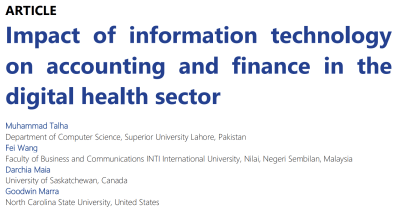 At right, for instance, Talha collaborates with Fei Wang, Darchia Maia and Goodwin Marra. Now Darchia Maia is usually based at the University of Georgia In Tbilisi, rather than in Saskatchewan as here, but doesn’t exist. Despite having a ResearchGate entry. It is one of those names used by papermills to allow the customers to pretend that they have a
At right, for instance, Talha collaborates with Fei Wang, Darchia Maia and Goodwin Marra. Now Darchia Maia is usually based at the University of Georgia In Tbilisi, rather than in Saskatchewan as here, but doesn’t exist. Despite having a ResearchGate entry. It is one of those names used by papermills to allow the customers to pretend that they have a Canadian girlfriend Prestigious International Collaborator. The millers even used a forwarding service to provide “Dr Maia” with a fake but Georgian-seeming email address for correspondence (read about Hindawi’s retraction of “Darchia Maia” papers in Schneider Shorts). I have doubts about “Goodwin Marra” too.
Anyway, as well as those four from Soft Computing, there are at least 45 Hindawi papers whose authors felt the compulsion to cite M. Talha’s magisterial works with no concern for relevance. The list is dominated by a handful of thoroughly-debauched Special Issues, so almost all have been retracted. Notably
- Four by Talha with a variety of
fare-paying passengersco-authors. - Four by regular collaborator Mishal Sohail with fare-paying passengers. Sohail was a student in the Computer Science Dept. at Superior University Lahore (Pakistan). She only ever uses Talha’s e-address at that institution, or a Gmail account, or “
dr.mishalsohail@mail.cu.edu.kg” – a burner email address in Kyrgyzstan, dishonestly qualifying her for that Hindawi publishing-fee waiver. A minor shareholder in Talha’s company “Dreamix Corporation“. - Two by Muhammad Talal Ahmad – who is real, and whose name comes up below – with fare-paying passengers.
 “Artificial Intelligence Assists the Construction of Quantitative Model for the High-Quality Development of Modern Enterprises” (Li & Madina 2022). Prof. Zamira Madina has a ResearchGate entry and 10 papers in Hindawi Special Issues, with a different fare-paying passenger each time. Also a burner email address in Kyrgyzstan. That is, another Non-Player Character, set up to bestow Foreign-Coauthor kudos upon the papermill customers and to claim the fees waiver.
“Artificial Intelligence Assists the Construction of Quantitative Model for the High-Quality Development of Modern Enterprises” (Li & Madina 2022). Prof. Zamira Madina has a ResearchGate entry and 10 papers in Hindawi Special Issues, with a different fare-paying passenger each time. Also a burner email address in Kyrgyzstan. That is, another Non-Player Character, set up to bestow Foreign-Coauthor kudos upon the papermill customers and to claim the fees waiver.- “The Construction and Development of App Application Platform for Public Information Products of Urban Grand Media in the Context of Artificial Intelligence” (Jing & Maia 2021) – Illusory Dr Maia again! Perhaps the character’s name is a homage to the Buddhist concept of ‘Maya‘, the captivating but ephemeral waking-dream of mundane experience.
- “Exploring the Path of Enhancing Ideological and Political Education in Universities in the Era of Big Data” (Shao & Hu 2022).
Eligible for a full waiver
“I reviewed papers published in special issues of Hindawi journals that had corresponding authors from low- and middle-income countries. It seems, the APC waiver policy may be being abused by papermills” – Parashorea tomentella
I single out that last paper to justify the second half of the post’s title. Here are Shao & Hu to explain that being impervious to indoctrination is a form of mental illness. Literally.

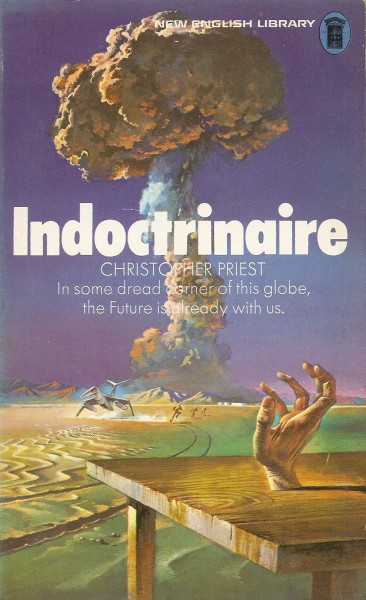 It exemplifies one large group of gobbledegook sandwiches (Bishop, 2022) within the wide swathe of retracted Hindawi papers, bridging the gap between computer science and brainwashing. By way of nonsensical handwavy flim-flam, they argue that universities could do better in their core role of steering young people away from the path of Badthink if they embrace personalised surveillance, AI, Big Data and biologically-themed optimisation algorithms.
It exemplifies one large group of gobbledegook sandwiches (Bishop, 2022) within the wide swathe of retracted Hindawi papers, bridging the gap between computer science and brainwashing. By way of nonsensical handwavy flim-flam, they argue that universities could do better in their core role of steering young people away from the path of Badthink if they embrace personalised surveillance, AI, Big Data and biologically-themed optimisation algorithms.
Of course the sentient rubber-stamps guest-editing Special Issues on behalf of papermills would have accepted anything – they don’t give two tugs on a dead dingo’s dick about content – so the popularity of this theme is driven by the papermill customers (nominally the authors), for whom “scoring brownie points with the lickspittle commissars in faculty administration” counts for a lot.
3. Education Research
Talha aside, a Citation Broker appears to be at work, encouraging authors to promote a range of journals that is wide and ecumenical. The broker’s special constellation of bogus citations is on display in Current Psychology. Four papers in Frontiers in Psychology (plus one in Frontiers in Education). Forty-five papers in a Springer journal, Language Testing in Asia.
What really catch the eye, though, are the 72 papers in Hindawi’s Education Research International. There, the Editors who accept each manuscript are named. Three close colleagues Mehdi Nasri, Ehsan Rezvani and Ehsan Namaziandost show a special eagerness to cooperate with the sale of citations. The manuscripts’ authors include Namaziandost-adjacent researchers like Asma Gheisari, Afsheen Rezai, Tahereh Heydarnejad.
Here are a few stars in that constellation of journals represented by the broker. I ended up creating another cross-indexed worksheet in the spreadsheet to keep track of them, because of course I did.
- Journal of Commercial Biotechnology
- Res Militaris
- Revista de Psicologia del Deporte (a.k.a. Reviews of Sports Psychology)
- Educational Sciences: Theory and Practice (a.k.a. Kuram ve Uygulamada Eğitim Bilimleri).

But those 45 papers in Language Testing in Asia deserve a brief digression, for they belong to a Special Issue on “Learning oriented Assessment (LOA): A Window for Fairness in Classroom Assessment?”, and the Guest Editors are known: Ehsan Namaziandost again, Xuesong (Andy) Gao, Christine Coombe. Some papers are padded out with spurious references that are designed to benefit individual authors rather than journals – specifically, B. (Balachandra) Vadivel (or sometimes V. Balachandra), and E. Namaziandost. Many copy-paste a distinctively garbled versions of (a) the DOI of a Frontiers paper, and (b) Vadivel’s name. Implying a centralised, editorial-level insertion (at least in these cases) rather than bad decisions by individual authors. Between them, Namaziandost and Vadivel (N & V for short) harvested 177 citations from this SI.*
 So this is cottage-industry-level citation coercion, coexisting with the industrial-scale manipulations to advertise journals. In fact this coexistence extends across the wider Ed. Res. Internat. corpus of compromised papers: some of the Reference Sections benefit N & V, while others benefit the promoted journals and (sometimes) N & V.#** As a general observation, once an author or reviewer or editor has declared References to be open for business, accepting garbage citations on behalf of corrupt editors, they’re more likely to accept the blandishments of a citation broker, and vice versa.
So this is cottage-industry-level citation coercion, coexisting with the industrial-scale manipulations to advertise journals. In fact this coexistence extends across the wider Ed. Res. Internat. corpus of compromised papers: some of the Reference Sections benefit N & V, while others benefit the promoted journals and (sometimes) N & V.#** As a general observation, once an author or reviewer or editor has declared References to be open for business, accepting garbage citations on behalf of corrupt editors, they’re more likely to accept the blandishments of a citation broker, and vice versa.
With all that out of the way we can proceed to the big denouement: in a twist worthy of M. Night Shyamalan, the promoted journals in this constellation are not as diverse as they seemed!
4. The Journal Pirates
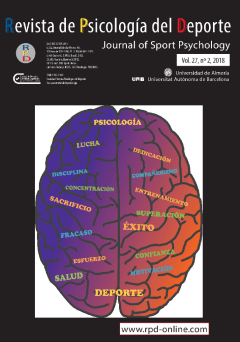 Where to begin? Revista de Psicologia del Deporte (Journal of Sports Psychology), founded in 1992, was once a Hispanic production with an Iberian editorial team, hosted by the Universitat Autònoma de Barcelona with additional sponsorship from Universitat de les Illes Balears. Something happened in 2020: the journal is now published by a UK company Oxbridge Publishing, the contents are wall-to-wall papermill extrusion, while the publishing fee jumped from €300 to £5000. The main change in the old Editorial Board was the insertion of a Dr. Nira Hariyatie Hartani of Intellectual Edge Consultancy. Do the old editors know?
Where to begin? Revista de Psicologia del Deporte (Journal of Sports Psychology), founded in 1992, was once a Hispanic production with an Iberian editorial team, hosted by the Universitat Autònoma de Barcelona with additional sponsorship from Universitat de les Illes Balears. Something happened in 2020: the journal is now published by a UK company Oxbridge Publishing, the contents are wall-to-wall papermill extrusion, while the publishing fee jumped from €300 to £5000. The main change in the old Editorial Board was the insertion of a Dr. Nira Hariyatie Hartani of Intellectual Edge Consultancy. Do the old editors know?
It appears that Intellectual Edge and Hartani spawned Oxbridge Publishing as a shell company, for the sake of plausibility and a less South-East-Asian locale.
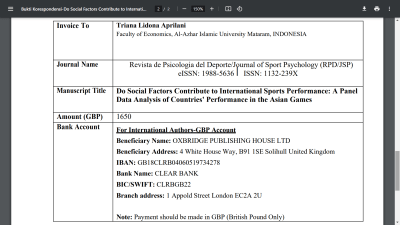 The role of Oxbridge is not shown anywhere on the journal’s website, but someone in Indonesia made a public copy of the invoice from the editors for publishing their skeezy purchased-authorship paper (perhaps to support a claim for reimbursement to the Head of Department). “Someone” here includes Kittisak Jermsittiparsert. Prompt payment appreciated. Pounds Sterling only. We look forward to your future custom.
The role of Oxbridge is not shown anywhere on the journal’s website, but someone in Indonesia made a public copy of the invoice from the editors for publishing their skeezy purchased-authorship paper (perhaps to support a claim for reimbursement to the Head of Department). “Someone” here includes Kittisak Jermsittiparsert. Prompt payment appreciated. Pounds Sterling only. We look forward to your future custom.
“Oxbridge” are housed at 4 White House Rd, B91 1SE ‘Sollihul’ [sic]. They also publish Social Space Journal, a.k.a. Przestrzeń Społeczna (previously published by ‘Stowarzyszenie Naukowe Przestrzen Społeczna i Srodowisko’):
- Managing Editor: Dr Xiaokai Yang, University of Economics in Katowice.
- Statistical Editor: Dr. Nira Hariyatie Hartani, again!
- Editor-in-Chief: Muhammad Haseeb Ph.D. (Visiting Professor at the University of Economics and Human Sciences in Warsaw)… moonlighting from his day-job as the only Director of Oxbridge Publishing. Haseeb, Hartani and Jermsittiparsert are all acquainted; they once bought authorship on a paper together because of course they did:
Muhammad Haseeb , Tulus Suryanto , Nira Hariyatie Hartani , Kittisak Jermsittiparsert Nexus Between Globalization, Income Inequality and Human Development in Indonesian Economy: Evidence from Application of Partial and Multiple Wavelet Coherence Social Indicators Research (2020) doi: 10.1007/s11205-019-02178-w
“After publication concerns were raised about the authorship and investigation has found irregularities with authorship changes when the revised version was submitted for consideration. The Editor-in-Chief has been unable to confirm the validity of the authorship as shown.”
Editorial Expression of Concern (July 2022)
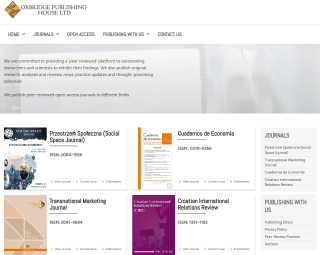 Oxbridge admit to ownership of three other journals:
Oxbridge admit to ownership of three other journals:
- Cuadernos de Economía (a.k.a. Spanish Journal of Economics and Finance)
- Transnational Marketing Journal, founded in 2013.
- Croatian International Relations Review, founded in 1995. Very little is true about its front-page legacy origin story:
“CIRR is a member of COPE – Committee on Publication Ethics – and is published electronically by the Institute for Development and International Relations (IRMO) in Zagreb. The journal is supported by the Ministry of Science and Education of the Republic of Croatia and is published in collaboration with De Gruyter Open, the world’s second largest publisher of Open Access academic content. CIRR is indexed by 40 scholarly databases, including ESCI, Scopus, Erih Plus, EconLit and Proquest Social Science Premium Collection.”
It would be tedious to track down how each one transitioned from genuine scholarly ownership to a pay-to-print papermill pukefunnel. In fact Duong Tu has explored this flotilla of journals at length, including the many roles of Nira Hartani and Jermsittiparsert. I will just say that Cuadernos de Economía hangs onto the names of the old Editorial Board – not necessarily with their permissions – while adding Dr. Nira Hariyatie Hartani as Editor-in-Chief. Meanwhile Dr Xiaokai Yang became Ed-in-Chief of the new pay-to-publish version of CIRR.
The first act of an academic boarding-party is to plunder the entire on-line archives of the boarded journal, to allow contributors to pretend that they are dealing with an established scholarly society. In the case of Cuadernos de Economía the pirates were unable or unbothered to go back any further than 2017.
 Oxbridge also operate under the name “Wisdom Park Publication” though Intellectual Edge never got around to the minor formality of registering a UK company with that title. Under that alias they claim to manage a stable of seven journals, with such an eclectic international mix of cultures and languages that they use Lorem Ipsum as the lingua franca.
Oxbridge also operate under the name “Wisdom Park Publication” though Intellectual Edge never got around to the minor formality of registering a UK company with that title. Under that alias they claim to manage a stable of seven journals, with such an eclectic international mix of cultures and languages that they use Lorem Ipsum as the lingua franca.
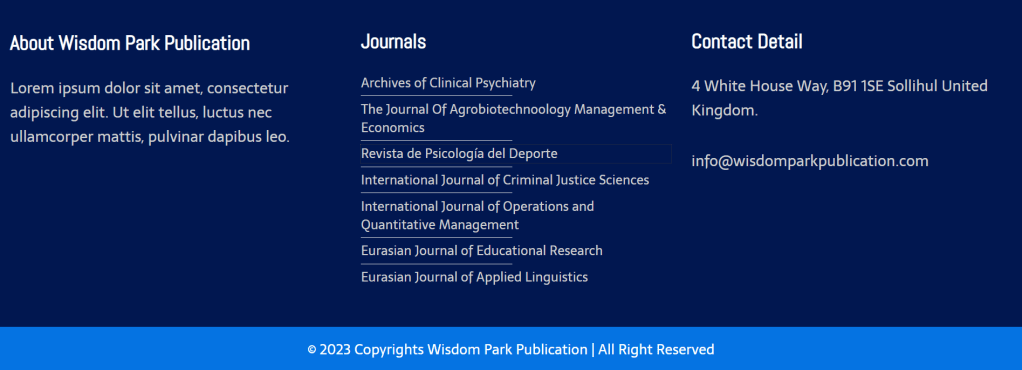
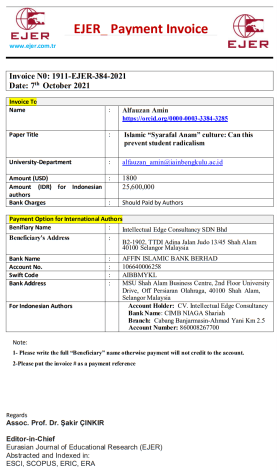 Within that stable, Eurasian Journal of Educational Research and Eurasian Journal of Applied Linguistics were initially Turkish, and the details of their assimilation to the Oxbridge / Wisdom Park Borg are left as an exercise for the reader. Again, Duong Tu got there long before me. Please make out the cheque for $1800 to Intellectual Edge Consultancy.
Within that stable, Eurasian Journal of Educational Research and Eurasian Journal of Applied Linguistics were initially Turkish, and the details of their assimilation to the Oxbridge / Wisdom Park Borg are left as an exercise for the reader. Again, Duong Tu got there long before me. Please make out the cheque for $1800 to Intellectual Edge Consultancy.
I am more interested in “The Journal Of Agrobiotechnoology [sic] Management & Economics”, which turns out to be AgBioForum. According to the ‘Welcome’ page,
“AgBioForum is financed by the Illinois Missouri Biotechnology Alliance. IMBA is supported by a Congressional Special Grant to provide funding for University biotechnology research. AgBioForum is offered free of charge, but membership is available. AgBioForum is edited at the University of Missouri-Columbia with the assistance of advising editors from all areas of its intended audience, including academia, private sector, and government.”
Despite the Solihull address, and a newly-imposed £2000 publication fee and £500 non-publication fee that are both in UK currency, Wisdom Park pretend to have to a Canadian provenance. The ‘Contact’ page provides more helpful information:
- Former Publisher: University of Missouri, USA
- Current Publisher: Wisdom Park Publications, Canada
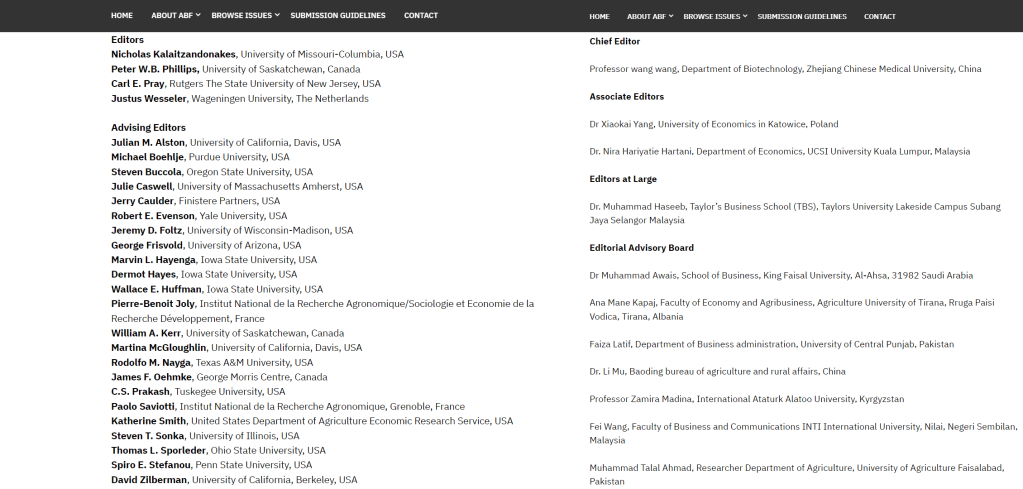
Archived copies of the Editorial Board page show the list of names to be intact for all of 2022 apart from the irruption of Nira Hariyatie Hartani as Managing Editor. Wang Wang et al. did not take over completely until 2023. Conceivably the OMIXation was more of a gradual infiltration.
It may be that no-one has informed the College of Agriculture, Food & Natural Resources at University of Missouri that they are the former publisher of this resource. Conversely, nor has anyone informed them that they’re legitimising paid-for citation-vehicle garbage by uploading the scammers’ output into their government-funded archives, under the impression that the stolen website is still their own.
We have not yet plumbed the full depths of this rabbit-hole. In fact the plumbing has barely begun. For #4 White House Way, Solihull, is also the abode of Versemark Publishers. Versemark have their own stable of pirated journals:
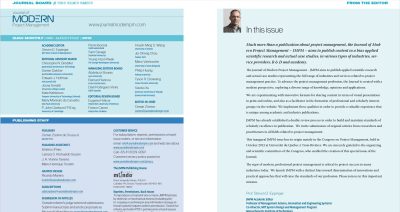 Journal of Modern Project Management… which was an ambitious international collaboration when it began in 2013, with publishing staff in Brazil and an editorial board spread across the world from MIT to Australia. Now it’s just another bullshit cloaca, listing our Polish friend Dr Xiaokai Yang as Editor-in-Chief.
Journal of Modern Project Management… which was an ambitious international collaboration when it began in 2013, with publishing staff in Brazil and an editorial board spread across the world from MIT to Australia. Now it’s just another bullshit cloaca, listing our Polish friend Dr Xiaokai Yang as Editor-in-Chief.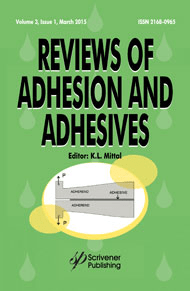 Reviews of Adhesion and Adhesives. Archive.org reveals a somewhat complex back-story. The appropriately-named vanity press Scrivener used to publish a few journals, including this one, though their focus was more on academic volumes. In 2010 they
Reviews of Adhesion and Adhesives. Archive.org reveals a somewhat complex back-story. The appropriately-named vanity press Scrivener used to publish a few journals, including this one, though their focus was more on academic volumes. In 2010 they were assimilated bymerged with the Wiley behemoth to form the imprint ‘Wiley-Scrivener’, which Wiley find useful for plausibly-deniable arms-length deals, i.e. when they publish the ineffable and inexplicable Ashutosh Tiwari. Details of the journal subscriptions were outsourced to Ingenta, but that side of the business was dropped in 2020, leaving the DOI links dangling and broken (bad luck if you published there). Publication details had passed into the hands of an Indian papermill ‘ResearchTrentz’ by the time the journal lost SCOPUS recognition in 2022. Then Versemark grabbed the journal title ‘RAA‘ and scraped its back-catalog for their own cloned website, adding new issues, and appending more paper-shaped brainfarts to the Tables-of-Content of older issues. I haven’t looked to see what became of the other journals that Wiley-Scrivener abandoned.
Publication details had passed into the hands of an Indian papermill ‘ResearchTrentz’ by the time the journal lost SCOPUS recognition in 2022. Then Versemark grabbed the journal title ‘RAA‘ and scraped its back-catalog for their own cloned website, adding new issues, and appending more paper-shaped brainfarts to the Tables-of-Content of older issues. I haven’t looked to see what became of the other journals that Wiley-Scrivener abandoned.- We have already encountered the Review of International Geographical Education Online (RIGEO).
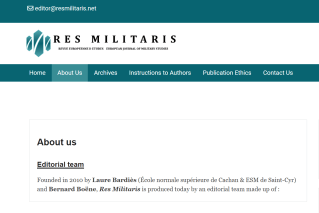 Res Militaris. In an increasingly familiar story, the scholars behind this ‘European Journal of Military Studies‘ (founded 2010) sold their claim to the domain (or forgot to renew it), so now it is Versemark property and authors who can’t write good are queuing up to pay $650. It is popular with academics in Vietnam, who are reluctant to accept that publications there earn them no credit (h/t Dr Duong Tu). The Board of Editors is blank because the genuine journal didn’t have one for the parasites to plagiarise.
Res Militaris. In an increasingly familiar story, the scholars behind this ‘European Journal of Military Studies‘ (founded 2010) sold their claim to the domain (or forgot to renew it), so now it is Versemark property and authors who can’t write good are queuing up to pay $650. It is popular with academics in Vietnam, who are reluctant to accept that publications there earn them no credit (h/t Dr Duong Tu). The Board of Editors is blank because the genuine journal didn’t have one for the parasites to plagiarise. - International Journal of Operations and Quantitative Management.
“So who is behind Versemark?”, asked no-one. The sole director and controlling shareholder turns out to be Muhammad Talal Ahmed, encountered earlier.
The overcrowding in 4 White House Way must be terrible, a digital boiler-room operation. Nick Brown suggests that there’s enough space for everyone if they spill into the garage, but then where would they park the clown-car? The 3rd publisher operating out of that address is ThinkBioTech1, whose journals I consult for all my fish taxonomy needs. The name was chosen to imply a connection to the US venture-capital firm ThinkBioTech0. Here I use superscripts to disambiguate.
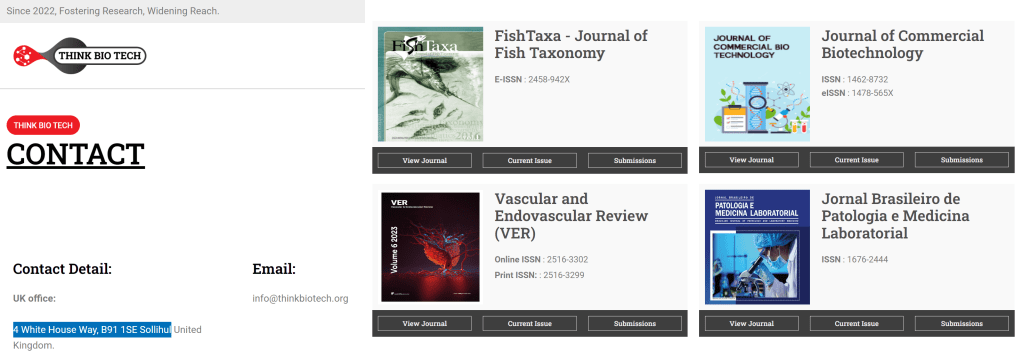
The Journal of Commercial Biotechnology was an unassuming trade publication run by pharma entrepreneurs and publicists until some time after May 2022. An out-of-date Wiki entry tells us that it was published by Palgrave MacMillan for a while, and purchased in 2010 by ThinkBioTech0 (the biopharm entrepreneurs). Then a list of familiar names copied the company name and used it to crash their clown-car into its office and replace the Editorial Board with their own prize crew, in scenes reminiscent of the Crimson Permanent Assurance.
Dr. Xiaokai Yang is there at the top, and Nira Hariyatie Hartani as “Editor at Large”, and Dr. Muhammad Haseeb, still mantled in the title “Visiting Professor at the University of Economics and Human Sciences in Warsaw”. Plus Professor Wang Wang, Department of Biotechnology, Zhejiang Chinese Medical University. Muhammad Talal Ahmad is near the bottom of the list.

But also
- Professor Zamira Madina, International Ataturk Alatoo University, Kyrgyzstan
- Kaza Mojtahe, Department of bio-health Engineering, Kyrgyz-Turkish Manas University, Kyrgyzstan
- Dr Darchia Maia, School of science and technology, University of Georgia, Athens (i.e. shifted from Georgia, the former Soviet Republic, to GA in the US)
Inquiring minds are wondering how many other editors are also NPCs, and how many of them have publication/retraction records at Hindawi. Very similar mixtures of scoundrels, NPCs, and the stolen names of usurped editors are now editing pimping out Fish Taxa, Vascular and Endovascular Review and Jornal Brasileiro de Patologia e Medicina Laboratorial.
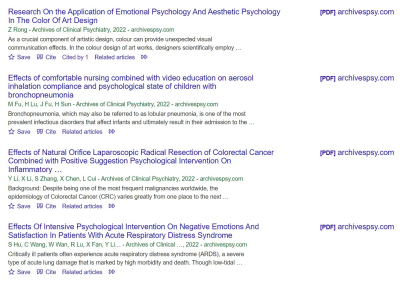 Though not announced on their website, ThinkBioTech [no relation to the corrupt environmental gangsters with the same name in Cambodia] also operate Archives of Clinical Psychiatry (Revista de Psiquiatria Clinica). “Wait”, asked absolutely no-one, “Wasn’t that the property of the unrelated company Oxbridge?” Apparently not.
Though not announced on their website, ThinkBioTech [no relation to the corrupt environmental gangsters with the same name in Cambodia] also operate Archives of Clinical Psychiatry (Revista de Psiquiatria Clinica). “Wait”, asked absolutely no-one, “Wasn’t that the property of the unrelated company Oxbridge?” Apparently not.
Prior to its seizure and the plunder of its archives, this journal was published by Facultade de Medicina at Universidade de Sao Paulo, with a website that hasn’t changed since the “current issue” in 2020 – the persisting existence of that moribund site suggests that the journal and its back-catalogue were hijacked rather than purchased. It should come as no surprise that the new version’s Editor-in-Chief is Professor Wang Wang again.
Another unacknowledged, disowned asset of ThinkBioTech is the Journal of Natural Science, Biology and Medicine. The editors are just who you’d expect. From 2010 to July 2021 this was published by Medknow: an imprint of Wolters Kluwer, targeting South Asia. There are bound to be more ThinkBioTech assets out there.

But I seem to have buried the lede. It was the lede’s fault for getting in the way of the back-hoe. Who is the sole director of ThinkBioTech? Um, that would be our friend Muhammad Talha again… frequent Hindawi contributor / retractee, assiduous citation farmer, and an integral part of this ecosystem of parasitical journals; he ties this whole post together.
Talha provides a convenient segue to H&N Publishers. This new company has an Editorial Advisory Board, and sure enough Talha is there, singled out for his Directorship of journal-hijacking company Dreamix Corporation (which was struck off and dissolved in January 2023 but nevermind).
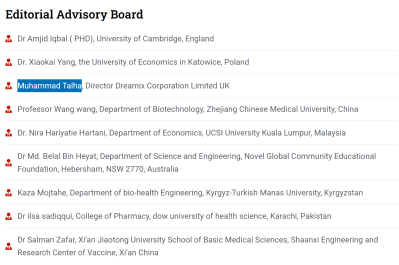 A Kaza Mojtahe is on the board to represent the Imaginary-Kyrghyzstani hyphenated demographic.
A Kaza Mojtahe is on the board to represent the Imaginary-Kyrghyzstani hyphenated demographic.
Anyway, H&N Publisher also squeezes into the Tardis that is #4 White House Way. The Directors’ Table has Muhammad Huseeb (again) on one side while Nira Hariyatie Hartani (again) occupies the other side, taking the minutes in her dual role as Secretary.
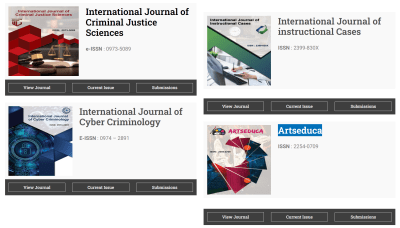 There is little to say about the actual journals offered by H&N… there are only four, and the change in management has done nothing to make them any worse, for they were sad little affairs already.
There is little to say about the actual journals offered by H&N… there are only four, and the change in management has done nothing to make them any worse, for they were sad little affairs already.
- International Journal of Criminal Justice Sciences (IJCJS). Which is confusing to anyone who was paying attention to the claim from Oxbridge / Wisdom Park that they’re its publisher.
- International Journal of Cyber Criminology (IJCC)
- International Journal of instructional Cases (IJIC)
- Artseduca
 Dr Haseeb is a graduate of the Business School of Taylor’s University, Malaysia, where “pilfering and plundering” are evidently considered to be a branch of business.*** That creates an excuse to mention Dr Muhammad Sadiq, who is also affiliated to Taylor’s (with a secondary affiliation to Fuzhou University of International Studies & Trade). Though listed among the Editors of Journal of Modern Project Management, Sadiq is not a core member of the Intellectual Edge ecosystem. He has a few other editorial roles and (inevitably) is Guest-Editing Special Issues for MDPI and SAGE, not to mention scamference organising for ‘SCS Publishing‘…
Dr Haseeb is a graduate of the Business School of Taylor’s University, Malaysia, where “pilfering and plundering” are evidently considered to be a branch of business.*** That creates an excuse to mention Dr Muhammad Sadiq, who is also affiliated to Taylor’s (with a secondary affiliation to Fuzhou University of International Studies & Trade). Though listed among the Editors of Journal of Modern Project Management, Sadiq is not a core member of the Intellectual Edge ecosystem. He has a few other editorial roles and (inevitably) is Guest-Editing Special Issues for MDPI and SAGE, not to mention scamference organising for ‘SCS Publishing‘…
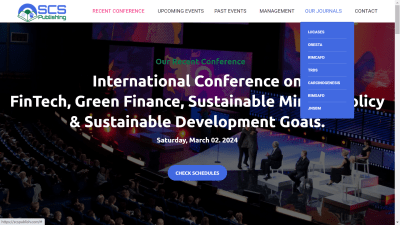 No, wait, SCS is just another buttock of Intellectual Edge’s bum. Six journals are listed on the SCS site to justify the “publishing” part of the name…
No, wait, SCS is just another buttock of Intellectual Edge’s bum. Six journals are listed on the SCS site to justify the “publishing” part of the name…
- Journal of Natural Science, Biology and Medicine – supposedly also published by ThinkBioTech.
- International Journal of Instructional Cases – also published by T&N.
- Review of Diabetic Studies (Managing Editor: Dr Amjid Iqbal)
- Journal of Carcinogenesis (Editor-in-Chief: Dr Amjid Iqbal)
- Revista multidisciplinar de las Ciencias del Deporte (Manag. Ed: Dr Amjid Iqbal)
- Operational Research in Engineering Sciences: Theory and Applications.
Some time in the last few months, Operational Research in Engineering Sciences: Theory and Applications (ORESTA) – supposedly published by a Serbian scamference society – replaced its Balkan editors with a familiar mixture of plunderers and Dead Souls and NPCs. It also acquired a £2500 publishing fee. Hijack or hostile takeover?
5. Environmental Research
But sticking for now with Drs Haseeb and Sadiq, somehow they persuaded a group of Lithuanian scholars to turn the first 2023 issue of Engineering Economics into a Special Issue on “Eco-innovation and Sustainable Development“, with themselves in charge (along with a Polish colleague, Marcin Staniewski). To no-one’s surprise, the eight constituent papers are vehicles for citation cargoes that advertise Intellectual Edge journals. The eighth is by a certain M. Talha.
More specifically, the papers advertise the “business / green economy” wing of the IE holdings: Cuadernos de Economía, AgBioForum, International Journal of Construction Supply Chain Management, etc. They’re just a small corner of the sub-genre of citation-compromised papers devoted to promoting these predators. As foreshadowed above, there are enough to require a separate worksheet. The Engineering Economics editors might want to rethink their Special Issue.
The suborned Reference Sections are concentrated in Environmental Science and Pollution Research, from Springer (32 papers); Economic Research-Ekonomska Istraživanja from Taylor & Francis (26 papers); while Elsevier provided Journal of Innovation & Knowledge and Resources Policy, with 10 and 28 papers respectively (only three in Journal of Environmental Management). The torrent of manuscripts pouring out through these journal-shaped spigots all sprang from a small circle: authors are dominated by M. Sadiq, and his frequent Fuzhou University collaborator Fengsheng Chien with a team of students. Massoud Moslehpour features as well. All are masters of the self-citational arts. Judging from the eclectic extent of Sadiq’s coauthors, “authorship bazaar” is another area of study at Business school.
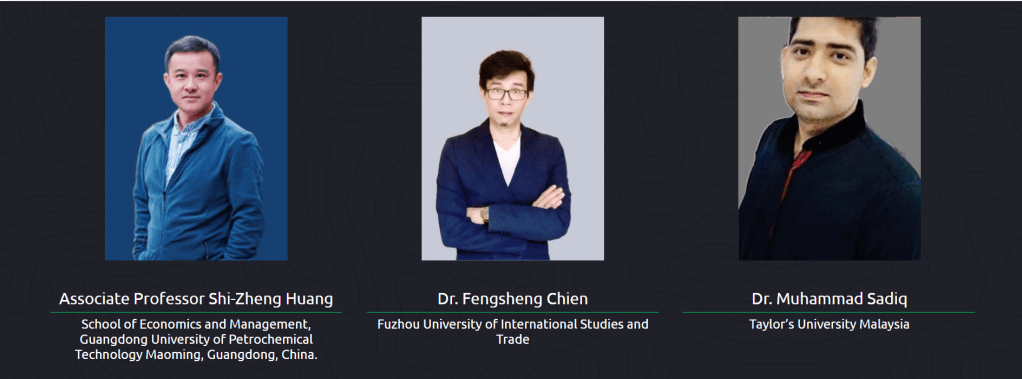
Somehow none of the editors and reviewers at these journals wondered about the recurring names in the gusher of manuscripts. Readers might wonder if Special Issues were involved, or if the same Responsible Editors signed off all the papers in this sub-genre. I will settle for pointing out that the SCS advertisement for its mockademic conference ends with a promise that participants’ presentations will be published in:
- Environment Science and Pollution Research (SCIE, IF 5.8; WOS Q2; Scopus Q1)
- Resources Policy (SSCI, IF 10.2; WOS Q1; Scopus Q1)
- Environment, Development and Sustainability (SCIE, IF 4.9; WOS Q3; Scopus Q1)

Going back to the journals pimped out by SCS Publishing: the appearance of Journal of Carcinogenesis was not an overwhelming surprise, since its website domain is linked to the name-server used by PalArch – along with familiar names and some novel ones. “Ijcscm.com”, for instance, is International Journal of Construction Supply Chain Management.

J. Carcin. exemplifies a third, health-related wing of Intellectual Edge money-making acquisitions, along with J Nat Sci Biol Med and Archives of Clinical Psychiatry and Revista de Psicología del Deporte and Am J Health Behav. – discussed in the next Section. Promoting those journals became the task for another sub-genre of fictional References, mainly grafted to the works of an Iranian group of authors (sometimes with a Chinese passenger). They in turn are tabulated in yet another worksheet. That is still a work in progress, however.
6. Journal pirates, part 2
Everyone is bored now, but SOBIAD (“Social Sciences Bibliography Indexes Archive Data”), and its four journal-shaped artifacts, still require a cursory glance. They feature in, for instance, the generous ration of transactional citations in “Post-COVID-19’s impact on green supply chain management and sustainable E-commerce performance” (Jalil et al 2023). Or “Environmental MCS package and green intellectual capital influence environmental performance” (Akram et al 2023).
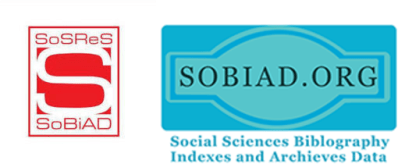 The acronym is so ugly and forced because it was reverse-engineered to fit the name of the erstwhile Turkish publisher, Sosyal Bilimler Araştırmaları Derneği (“Social Sciences Research Society”).
The acronym is so ugly and forced because it was reverse-engineered to fit the name of the erstwhile Turkish publisher, Sosyal Bilimler Araştırmaları Derneği (“Social Sciences Research Society”).
- International Journal of Social Sciences and Humanity Studies
- International Journal of Economics and Finance Studies
- International Journal of Business and Management Studies
- International Journal of eBusiness and eGovernment Studies
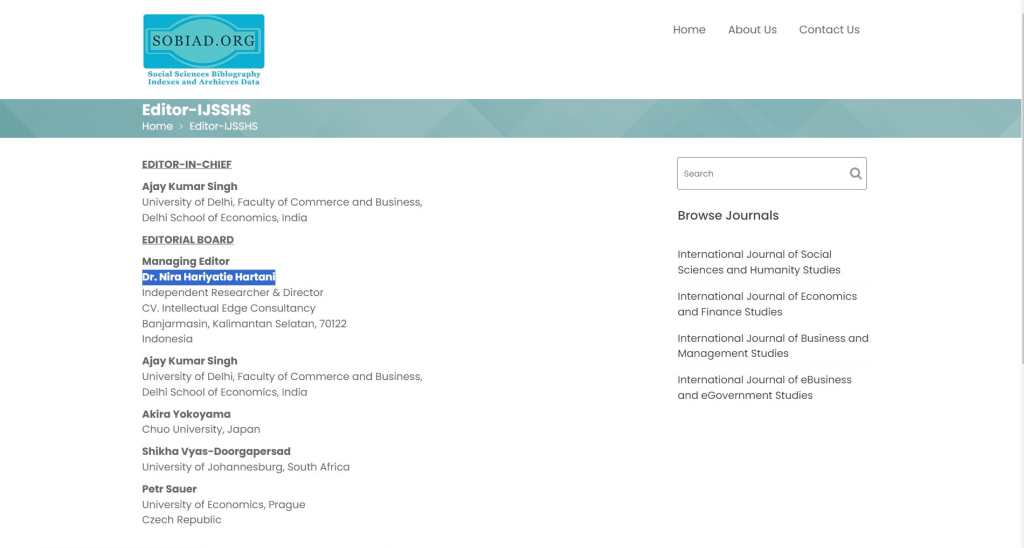
It would be tedious to explore the journals at length, but the involvement of Nira Hariyatie Hartani causes a flicker of suspicion that ‘SOBIAD’ has been grafted onto the same multi-headed hydra. That would certainly explain why crap papers from these four journals appear in the citation cargoes of many corrupted papers.
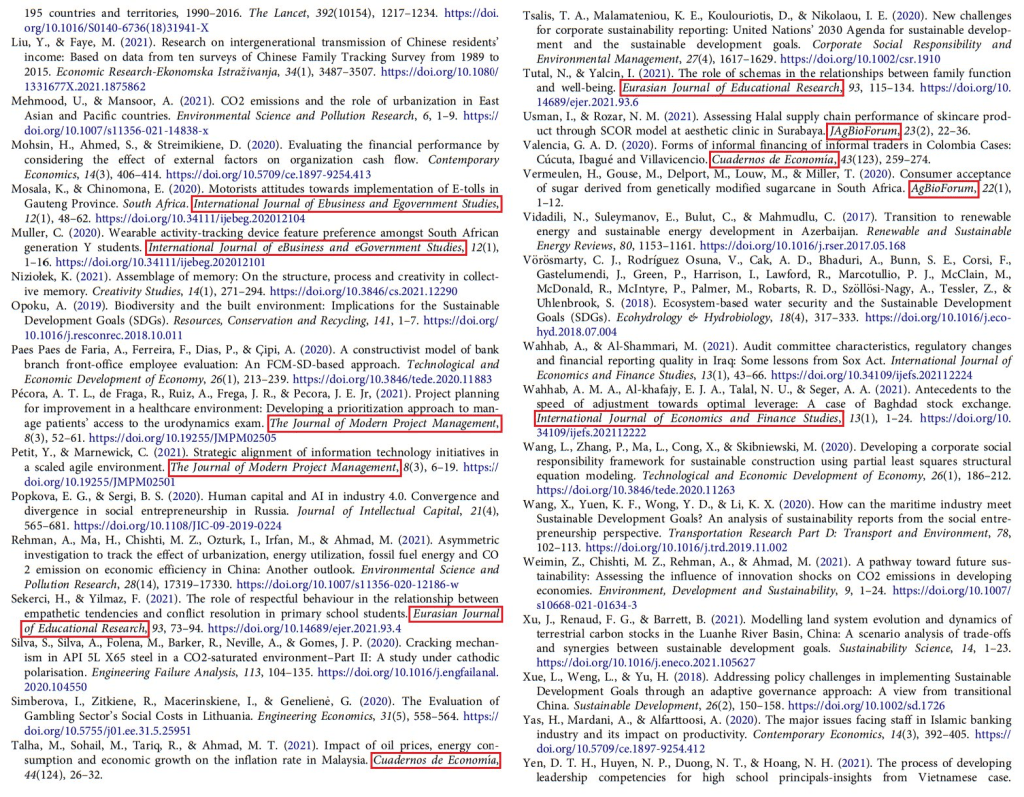
This post turned into a lengthy cavalcade of pirated journals. Even now, while the buccaneers profit from the SCOPUS recognition inherited by their stolen journals, they are looking around for their next targets.
As noted, much of this journal-takeover malarkey is not true “hijacking”. But consider a prototypical case of identity-theft piracy: the Baltic Journal of Law and Politics, originally brought to us by a Lithuanian scholarly society. Its associated university press Versita was licensed to the Warsaw-based, European branch of De Gruyter. That publisher later organised many of its OA journals into a ‘Sciendo’ imprint, and Versita was subsumed entirely in the process, ceasing to exist as a separate company.
This, and a hiatus in the Baltic Review publication schedule, was enough of an excuse for opportunistic parasites who moved in and appropriated the vacant company name for their website in the manner of a hermit crab. They also appropriated the journal’s back-catalog to furnish their lowlife operation with an illusory past. Desperate pleas in the Scimago website / help-line attest to the problem, with unhappy customers demanding to be told what happened to the $$$ they paid to have a brainfart published, while staff roll their eyes wearily and advise each inquirer in turn to direct their question to the fraudsters.
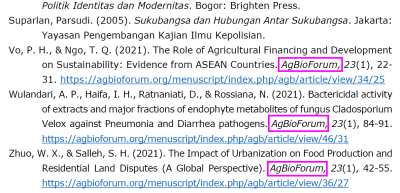 But the brigands have a curious habit of extending their victims’ manuscripts with citations that redound to the benefit of AgBioForum et cetera. Almost as if they are linked to the Intellectual Edge crowd! Meanwhile, the nameserver used by the identity-fraud ‘Versita’ site also serves Journal of Natural Science, Biology & Medicine from ThinkBioTech, and Journal of Modern Project Management from Versemark. I have concerns.
But the brigands have a curious habit of extending their victims’ manuscripts with citations that redound to the benefit of AgBioForum et cetera. Almost as if they are linked to the Intellectual Edge crowd! Meanwhile, the nameserver used by the identity-fraud ‘Versita’ site also serves Journal of Natural Science, Biology & Medicine from ThinkBioTech, and Journal of Modern Project Management from Versemark. I have concerns.

Indeed, it also serves History of Medicine, a previously Russia-based journal for medical historians that somehow became a conduit for endless Odes to Small Lumps of Green Putty (all from Iraq). Anyway…
Because so much of the content of pirated journals has a papermill provenance, and because the market in bogus citations provides millers and authorship dealers with a useful tributary to their main income streams, Intellectual Edge journals publish a lot of “citation delivery vehicles” – papers crammed with references to irrelevant, out-of-context papers from elsewhere. Just like journals from supposedly legitimate publishers! They also buy citations from papers in other journals, just to advertise their acquisitions.
This illustrates the twin aspects of citation trafficking. A paper is at least problematic if its References were suborned (by the authors for some quid-pro-quo, or by editorial intervention) for the benefit of irrelevant papers extruded through parasitical journals. It is equally problematic if the citations it receives all come from irrelevant papers extruded through parasitical journals.
Papers that were conspicuous in either regard form two sections of this post. They come from papermills that are active right now, in contrast to the usual antiquarian pursuit of shite papers from the past where the millers have since moved on to other styles of fabrication. With the caveat that citation abuse is only a common symptom of papermill activity, and not a reliable sign in the future, because the millers could relinquish the extra income at any time.
There seems to be piracy in progress. The American Journal of Health Behavior is notable enough to have its own Whackyweedia page, where we learn that in 2021, Elbert D Glover
“…sold the journal to JCFCorp (Singapore). As part of their enterprise, the new publisher choose to retain the original publisher name, but slightly changed to “PNG Publications and Scientific Research Limited” (London).”
 Due diligence would have revealed that JCF Corp is a knacker’s yard, and that PNG Publications and Scientific Research Limited was helmed by our friend Muhammad Haseeb as sole director. The shell company was soon disincorporated for dodgyness that was unacceptable even by UK corporate standards, but never mind, a new version took its place – this time directed by Muhammad Talha. The replacement carapace is housed in a different single-storey-detached bungalow in Solihull (on account of 4 White House Way finally reaching capacity), which is why I didn’t mention it before. A new Editorial Advisory Board waits in the wings, as part of a webpage that was cloned from Oxbridge Publishing and only partially customised, while a General Information page offers the reassurance that Nira Hartani will Manage Finances. This ends badly.
Due diligence would have revealed that JCF Corp is a knacker’s yard, and that PNG Publications and Scientific Research Limited was helmed by our friend Muhammad Haseeb as sole director. The shell company was soon disincorporated for dodgyness that was unacceptable even by UK corporate standards, but never mind, a new version took its place – this time directed by Muhammad Talha. The replacement carapace is housed in a different single-storey-detached bungalow in Solihull (on account of 4 White House Way finally reaching capacity), which is why I didn’t mention it before. A new Editorial Advisory Board waits in the wings, as part of a webpage that was cloned from Oxbridge Publishing and only partially customised, while a General Information page offers the reassurance that Nira Hartani will Manage Finances. This ends badly.

 I am not saying that every journal that chooses to festoon its Editorial Board with this passel of rogues and rapscallions is necessarily piratical, though you might very well think so. I was going to use stronger terms than “rogue”, like maybe “Cercopithecus”, but that would be an ad-hominin argument.
I am not saying that every journal that chooses to festoon its Editorial Board with this passel of rogues and rapscallions is necessarily piratical, though you might very well think so. I was going to use stronger terms than “rogue”, like maybe “Cercopithecus”, but that would be an ad-hominin argument.
 Educational Sciences – Theory & Practice started as a Turkish journal, sponsored by the consultancy EDAM. It appears that the sponsorship wound down at the end of 2018, and the editorial Board became more broadly international at the beginning of 2019, though the new management retained the Turkish website while the contributors mingled Turkish researchers with ones from further afield. By 2021, now helmed by a team from Universidad de Córdoba, the journal and its archives had acquired Codon Publications as their publisher, with an office in Brisbane (Australia), a new domain, and a Twitter account. Codon Publications seem to be just a third buttock of the JCF Corp / Intellectual Edge bum, and the other journals it’s acquired all need to be watched.
Educational Sciences – Theory & Practice started as a Turkish journal, sponsored by the consultancy EDAM. It appears that the sponsorship wound down at the end of 2018, and the editorial Board became more broadly international at the beginning of 2019, though the new management retained the Turkish website while the contributors mingled Turkish researchers with ones from further afield. By 2021, now helmed by a team from Universidad de Córdoba, the journal and its archives had acquired Codon Publications as their publisher, with an office in Brisbane (Australia), a new domain, and a Twitter account. Codon Publications seem to be just a third buttock of the JCF Corp / Intellectual Edge bum, and the other journals it’s acquired all need to be watched.

The Twiddle account is moribund though still extant. None of the announcements it tweeted out mention another editorial replacement but one happened anyway in December 2021, with the usual takeover team.
7. Coda
I must credit PubPeer contributors Parashorea tomentella and Rhipidura albiventris, who started threads for many of the 450 papers. Must thank Anna Abalkina for comments. Also Huanzi Zhang and Duong Tu who reached similar conclusions about the crew behind this slew of journals long before I showed up.
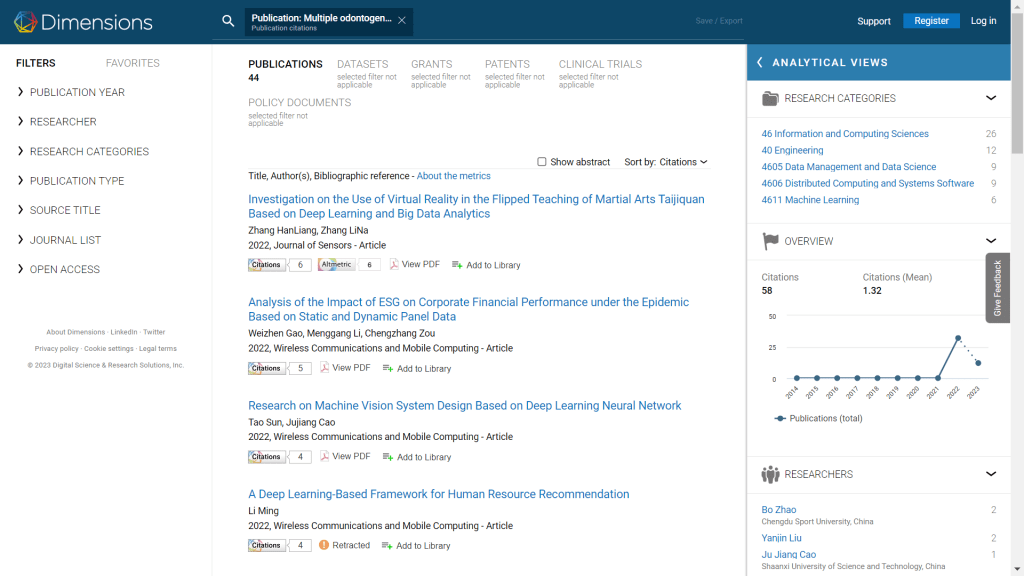
In particular, Parashorea tomentella set the ball rolling by noticing a plethora of recent citations for a 1995 paper on a rare jaw disorder – 44 citations so far in 2022-2023 – never in dental journals or in contexts where “Multiple odontogenic keratocysts” (Mody & Bhoosreddy, 1995) might conceivably be relevant.
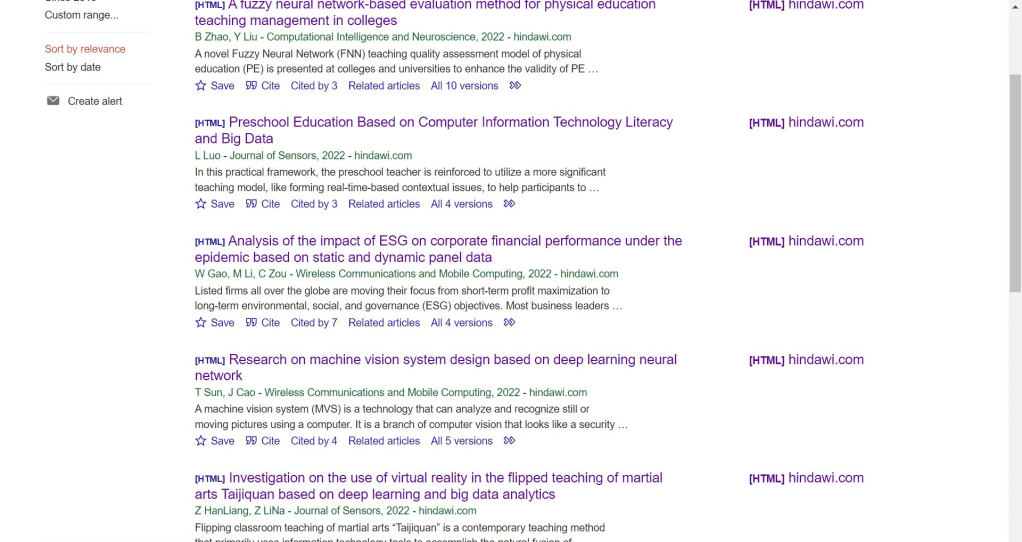
Special Issues in Hindawi journals hosted most of the sources of these citations. Almost all have been retracted, as is the custom. But also Frontiers journals; seven papers in the Journal of King Saud University; Sustainability from MDPI; Applied Biochemistry and Biotechnology from Springer; and seven in Soft Computing, in that Special Issue on “Advances in Pattern Recognition and Computer Vision, Applications and Systems“, mentioned earlier.
Hindawi Garbage Sorting System, Based on Citations
Parashorea tomentella continues their investigation of Hindawi’s uneasy collaboration with Chinese papermills. Can it be solved with the promised 511 retractions?
 Two citation donors were papers in Journal of Population Therapeutics and Clinical Pharmacology – or more accurately, two fine slices from a single salami. J Popul Ther Clin Pharmacol turns out to be a Codon Publications property as of 2019 (a detail concealed in an ‘Ethics’ webpage) which explains the Editors, and their eagerness to publish everything. Though another page still cites ‘ResearchTrentz’ as the journal’s owner, AND it also shows up under the rubric of ‘Dougmar Publishing Group’, so I won’t swear to its actual ownership.
Two citation donors were papers in Journal of Population Therapeutics and Clinical Pharmacology – or more accurately, two fine slices from a single salami. J Popul Ther Clin Pharmacol turns out to be a Codon Publications property as of 2019 (a detail concealed in an ‘Ethics’ webpage) which explains the Editors, and their eagerness to publish everything. Though another page still cites ‘ResearchTrentz’ as the journal’s owner, AND it also shows up under the rubric of ‘Dougmar Publishing Group’, so I won’t swear to its actual ownership.
Also Cellular and Molecular Biology. I hasten to add that this is the non-OMICS version of CMB (there are competing versions, because Avignon-papacy reasons). And seven preprints uploaded to ResearchSquare and mostly labeled as Undergoing Editorial Review for Soft Computing, conceivably for the same Special Issue. They’re incoherent profound enough to meet editorial standards!
Alternatively, 82 citations according to the looser count of G**gle Scholar, which includes skeezy unrecognised journal-shaped phenomena that don’t even pay to register the DOI identifiers that they claim to obtain for their contributors. Phenomena like Journal of Positive School Psychology (a famously hijacked journal), but also Eurasian Journal of Educational Research, Journal of Commercial Biotechnology, Archives of Clinical Psychiatry, Res Militaris, Cuadernos de Economía, AgBioForum… And CSimplications, and Educational Administration: Theory and Practice (not to be confused with the JESTP acquired by Codon). On account of the absence of valid DOIs, they remain blithely unflagged in PubPeer.
Perhaps it is more productive to look at what other papers were cited by authors who felt that odontogenic keratocysts were germane. Like Pinocchio in the course of his vagrant adventures, this inexplicably popular paper fell into disreputable company. These miscellanea are most frequently co-cited:
- B. Ahmed and A. Ali, “Usage of traditional Chinese medicine, Western medicine and integrated Chinese-Western medicine for the treatment of allergic rhinitis,” Official Journal of the Zhende Research Group, vol. 1, no. 1, pp. 1–9, 2020.
- H. Garg, “Digital twin technology: revolutionary to improve personalized healthcare,” Science Progress and Research (SPR), vol. 1, no. 1, 2020.
- Z. Li, “Treatment and technology of domestic sewage for improvement of rural environment in China-Jiangsu: a research,” Science Progress and Research (SPR), vol. 2, no. 1, 2022.
- S. O. Salihu and Z. Iyya, “Assessment of physicochemical parameters and organochlorine pesticide residues in selected vegetable farmlands soil in Zamfara State, Nigeria,” Science Progress and Research (SPR), vol. 2, no. 2, 2022.
- A. Shahabaz, M. Afzal, Implementation of high dose rate brachytherapy in cancer treatment, Sci. Prog. Res., 1 (2021), 77–106.

The four five mismatched musketeers at least have one thing in common to explain their fondness for one another’s company; they were all published in Science Progress & Research, a.k.a. Official Journal of the Zhende Research Group, a.k.a. Zhende Journal of Sciences. “Zhende Science” or the “Zhende Research Group” being a small-scale predatory start-up, headed by one Zihan Li out of Hong Kong, legally domiciled in the UK in search of favourable tax rates and freedom from onerous regulations about business oversight & transparency.
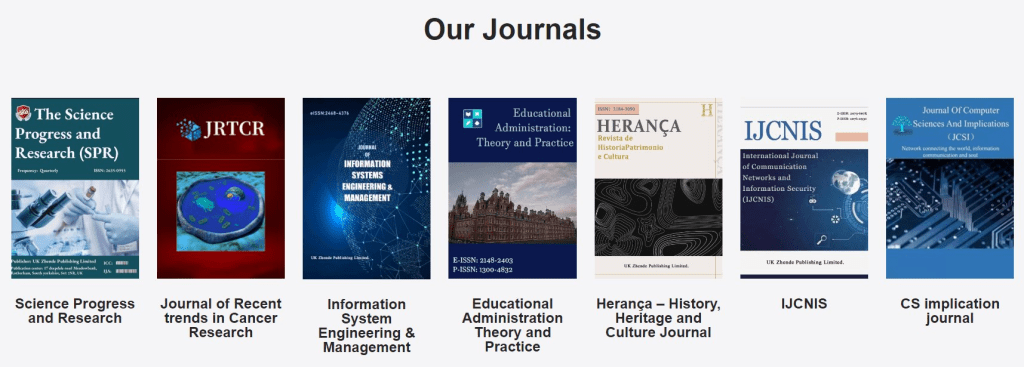
The seventh journal in the Zhende stable is CSImplications, where one requirement to be published is that you become courier for a cargo of SP&R citations. 4th journal is the just-mentioned Educational Administration: Theory and Practice. Its alternative title is Kuram ve uygulamada eğitim yönetimi or KUEY, what with being based in Türkiye until Zhende acquired the domain and website under uncertain circumstances. I also have concerns about the origins of Herança – History, Heritage and Culture Journal.
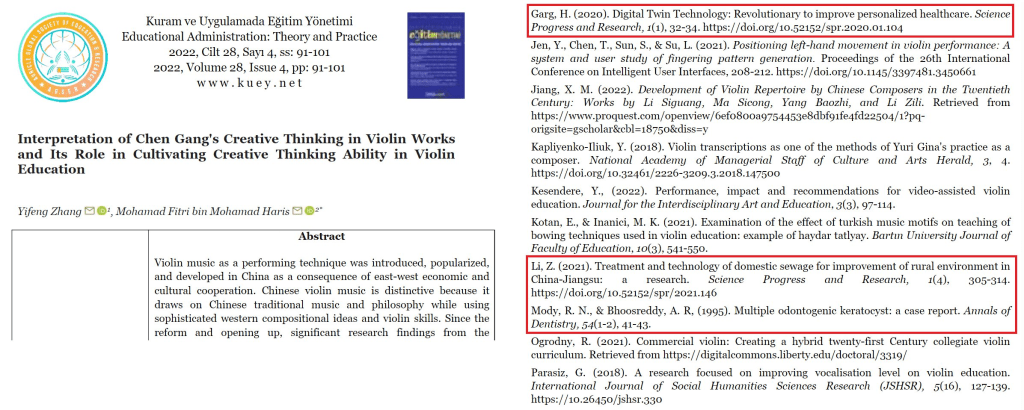
After extending the search terms with a few more titles from Sci.Prog.Res., trawling Dimensions.ai and G**gle Scholar for citation sources yield over 100 compromised titles. The worksheet may not be comprehensive.
So it looks as if Zihan Li commissioned a Citations Broker to raise the profile of SP&R by having random papers cite it. Whether the payola goes to authors, reviewers or editors is anyone’s guess. Li may even have arranged two commissions… Sometimes the cluster of Sci.Prog.Res. citations gatecrash a paper’s References section on their own, and sometimes they’re less exclusive, intruding as part of a larger bundle that’s dominated by Intellectual-Edge-related citations (aside from their frequent citation by Intellectual Edge journals assets).
It is also relevant here that Li’s journal hosts “Multiple Odontogenic Keratocysts: A Case Report” (Kapil & Jindal, 2020), i.e. a paper with the same title as the 1995 one. It looks as if the contract with the broker lacked some crucial details, and Li is paying for transactional citations that boost statistics for the wrong journal.

 Inquiring minds are wondering whether the Zihan Li from Glasgow University who runs Zhende is any relation to the Zhihan Li from Glasgow University who was appointed to the Editorial Board of Systematic Reviews in Pharmacy after that journal’s acquisition by Institutional Edge – along with Kittisak Jermsittiparsert.
Inquiring minds are wondering whether the Zihan Li from Glasgow University who runs Zhende is any relation to the Zhihan Li from Glasgow University who was appointed to the Editorial Board of Systematic Reviews in Pharmacy after that journal’s acquisition by Institutional Edge – along with Kittisak Jermsittiparsert.
Jermsittiparsert is not the main topic, but Duong Tu’s two-part exegesis on “How to publish hundreds of scientific articles every year” is too good to omit:
- https://www.facebook.com/groups/LiemChinhKhoaHoc/posts/325895748657264/
- https://www.facebook.com/groups/LiemChinhKhoaHoc/posts/558121238768046/
In other news, I am advised that Jermsittiparsert is now entrusted with editorial power and responsibilities at PLoS One.
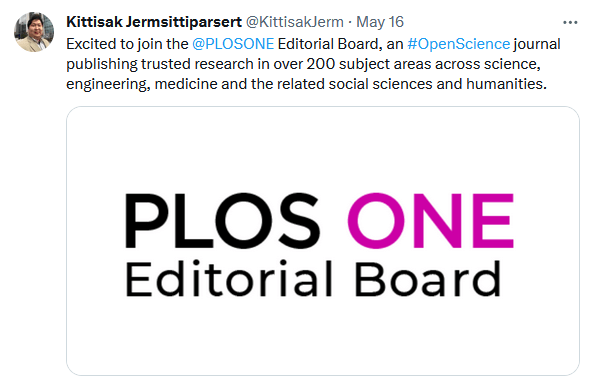
Here from 40 years ago are the Gravity Pirates as a palate-cleanser.
* The same diagnostic engarbled DOI appears in “Iranian EFL teachers’ reflective teaching, emotion regulation, and immunity: examining possible relationships” (Namaziandost, Heydarnejad & Rezai 2023). That was published in Current Psychology but it looks like an out-take from the Special Issue.
** More citational largesse is bestowed upon NK Acwin Dwijendra. This is not Hindawi-specific, as Dwijendra – a prolific collector of authorship on shite papers – works with citation brokers and collects citations from all manner of journals. In Environmental and Climate Technologies (from Sciendo, i.e. De Gruyter) nine Dwijendra-dominated papers combine egregious self-citation with Environment-related suggestions from the Intellectual Edge citation broker.
*** As any fule know, ‘pilferage and plunder’ is really a branch of philosophy.
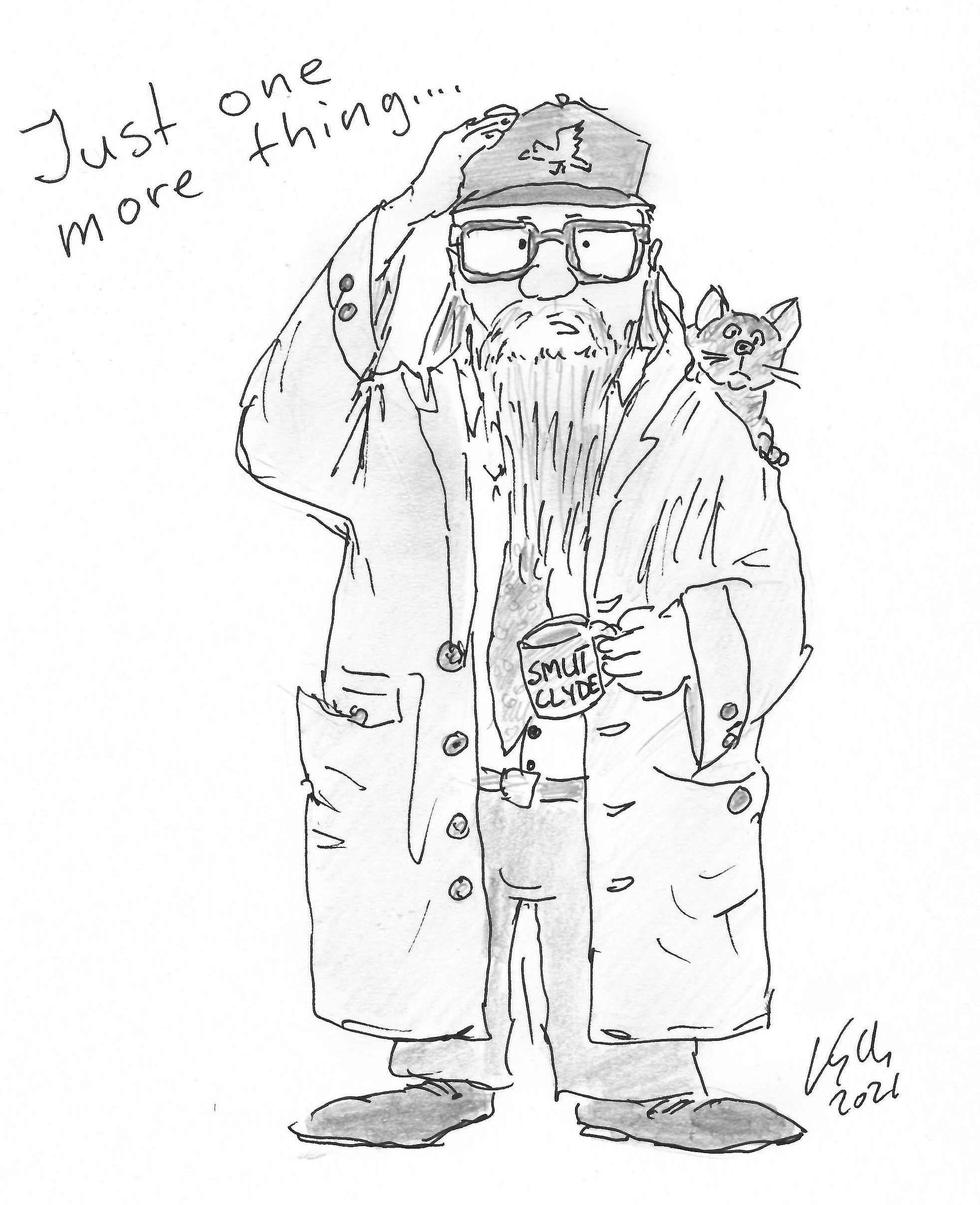
Donate to Smut Clyde!
If you liked Smut Clyde’s work, you can leave here a small tip of 10 NZD (USD 7). Or several of small tips, just increase the amount as you like (2x=NZD 20; 5x=NZD 50). Your donation will go straight to Smut Clyde’s beer fund.
NZ$10.00





Piracy?
In the dynamic landscape of business, astute entrepreneurs often seek opportunities to acquire cost-effective or superior assets, fostering financial gains and sustainable growth. Employing principles advocated by the Harvard Business School, businesses strategically diversify, capitalize on synergies, and consolidate resources to maximize efficiency. The cyclical process of acquisition, growth, and consolidation mirrors a well-orchestrated economic lecture, underlining the importance of meticulous planning, execution (, and a thoughtfully devised exit strategy?). These legitimate and ethical practices contribute to the long-term success of enterprises, aligning with the principles of responsible business management.
I would appreciate the opportunity to review their financial records.
LikeLike
Synergies! [drinks]
LikeLike
Also, people are not wearing enough hats.
LikeLike
I believe it was smut who introduced me to the concept of “write only literature”. Is this an example of “cite only literature”?
LikeLike
I see you have included a panel from the Secret of the Unicorn… When Tintin finally opens the treasure chest in Red Rackham’s Treasure, he discovers damp old documents. The captain is disappointed: “Documents? Fine! And what am I supposed to do with documents.” If only he could realise their true value!
LikeLike
Western Governors University? An “online” University.
LikeLike
Slight correction for your Google Doc (“Citation-milled”) linked from the “Talha Citation” break down above:
Row 35, “Machine Learning-Based Improvement of Musical Digital Processing Technology on Musical Performance” the DOI is incorrect for that article (10.1155/2022/831892). DOI.org also reports”DOI NOT FOUND”. According to what we have indexed on PSIref, the correct DOI for this same titled article, should be 10.1155/2022/8318928.
Havent finished reading this article (ran out of coffee), but its great so far – well done smut clyde!
LikeLike
My bad. Will fix.
The conclusions are not affected by the error…
LikeLiked by 2 people
Recent Kittisak retraction for authorship purchasing: https://www.sciencedirect.com/science/article/pii/S2210670720307484
“RETRACTED: Robust optimization of renewable-based multi-energy micro-grid integrated with flexible energy conversion and storage devices” (Amir Aris Lekvan, Reza Habibifar, Mehran Moradi, Mohammad Khoshjahan, Sayyad Nojavan, Kittisak Jermsittiparsert, 2021).
“This article has been retracted at the request of the Editor-in-Chief.
Post-publication, the editors discovered suspicious changes in authorship between the original submission and the revised version of this paper. The changes were made without explanation and without the exceptional approval of the handling Editor, which is contrary to the journal policy on changes to authorship. The editor investigated further and the explanation provided by the corresponding author was deemed unsatisfactory.”
LikeLike
As noted very briefly, the ‘Transnational Press’ imprint “Kurdish Studies” had become part of the Oxbridge imprint, back in November.
The post was already too long sufficiently comprehensive, and the journal hadn’t transformed into a firehose of pay-to-publish papermill garbage, so I didn’t explore any more.
Duong Tu informs me that the editorial staff turned up to work one day and found the locks all changed, with a new crew of hijacked identities in charge and a new policy of “Print anything for $$$”.
https://www.facebook.com/groups/LiemChinhKhoaHoc/posts/1074250407155124/?comment_id=1074437550469743
The displaced editors set up a replacement journal, describing the debacle in an Editorial: https://brill.com/downloadpdf/view/journals/ksj/1/1-2/article-p3_3.pdf
Nilay Özok Gündoğan reported on the imbroglio too (www.jadaliyya.com/Details/44879), noting that once again, Kurdish scholars had been displaced and exiled by a Turkish colleague. “That a Turkish academic owned and sold the only peer-reviewed academic journal of Kurdish studies in the Euro-American academia to a predatory journal is a black comedy.”
For ‘Kurdish Studies’ had previously been published by ‘Transnational Press’ – founded by one İbrahim Sirkeci, a doyen of ‘transnational’ research (migration, diasporas, refugees) in parallel to his academic career. Sirkeci also transferred his ‘Transnational Marketing Journal’ to Oxbridge Press (Intellectual Edge) to turn into a papermill pukefunnel.
Not to forget “Migration Letters” – yet another Transnational Press imprint (https://en.wikipedia.org/wiki/Migration_Letters). The Wiki entry is out of date. Anna Abalkina informs me that ML is now in the hands of drunken pirates, our friend Kittisak Jermsittiparsert in particular, who imposed a honking great publishing fee and turned it into a journal-shaped garbage scow. I note in passing that Kittisak is a Turkish academic now, with an affiliation to some skeezy pretend university in the Turkish occupation zone of North Cyprus.
For further entertainment, the reputation of the various ‘Intellectual Edge’ fuckpuppets has spread to the extent that the new ‘Kurdish Studies’ management want us to believe that their playpen has nothing to do with Oxbridge Publishing, that was all a clerical error; in fact the journal is published by a “Society of History and Cultural Studies, Hong Kong” (which has no other existence).
https://kurdishstudies.net/</
LikeLiked by 1 person
Kurdish Studies has been taken over by Dr. Nira Hariyatie Hartani Independent Researcher & Director of CV. Intellectual Edge Consultancy Banjarmasin, Kalimantan Selatan, 70122 Indonesia.
See correspondence letter posted in for public stating Kurdish Studies’ LICENSEE — Intellectual Edge Consultancy.
Source: https://publication.umsu.ac.id/index.php/ht/article/view/4083/3913
LikeLike
Alberto Martín Martín and Emilio Delgado López-Cózar, from the University of Granada, have published an in-depth analysis of Intellectual Edge, Oxbridge Publishing and the pirated-journal phenomenon. It is thorough even by my standards.
https://doi.org/10.5281/zenodo.14766414
Also Bluesky: https://bsky.app/profile/albertomartin.bsky.social/post/3lgxcff6xt22l
LikeLike